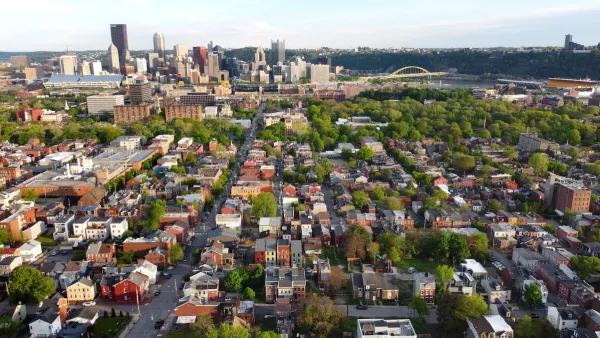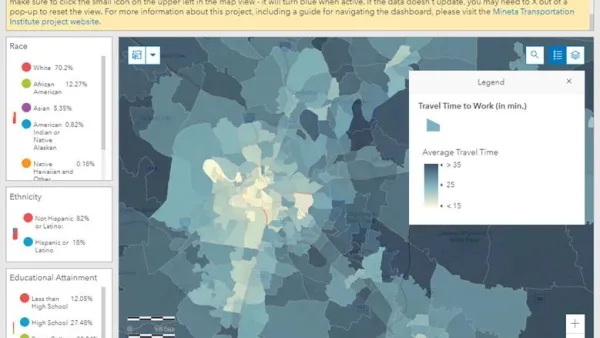Conservative opponents of Smart Growth often decry the role of government in establishing the regulations and investments that incentivize it. But, as Bradley Heard points out, all development rights, smart or sprawling, depend on big government.
Taking as his jumping off point a recent white paper from the conservative Heritage Foundation that lambastes the anti-market and anti-civil liberty policies of smart growth, Heard actually finds agreement with their core argument. "It's true that smart growth regulations infringe on the market," he says.
"But," he continues, "that's true of all development regulations—and of property rights themselves. By design, all property regulations constrain individuals' freedom of choice to decide how to acquire and use property. It's also true that pushing one form of development over another infringes on the market in a different and greater way than simply guaranteeing property ownership. But this too is a necessary evil of all development regulations."
Echoing President Obama's infamous jibe that "you didn't build that," Heard points out that critics of smart growth based on the principle that government intrusion upon the free market is objectionable are missing the big picture. "You can't build one of those suburban subdivisions—or even one of those fancy new mixed-use 'town centers' in the center of nowhere—unless the government blesses, builds, and maintains the roads, schools, sewers, and utilities to serve it."
"Meanwhile, smart growth requires a lot less government infrastructure than sprawl," argues Heard. "It also results in huge savings to taxpayers. By making communities walkable and bikeable, and locating them close to mass transit, smart growth reduces commutes, conserves important environmental resources, and facilitates more healthy lifestyles. And yes, as with suburban sprawl, smart growth also requires big government."
"Whether the Heritage Foundation and the Tea Party care to admit it or not, it's always been the case that individual property owners can only use property in accordance with the regulations set by the government. The right and responsibility to determine how land is used belongs to the government, for the benefit of the people as a whole, and it always has. That's necessary for modern civilization."
FULL STORY: All development rights depend on big government

Analysis: Cybertruck Fatality Rate Far Exceeds That of Ford Pinto
The Tesla Cybertruck was recalled seven times last year.

National Parks Layoffs Will Cause Communities to Lose Billions
Thousands of essential park workers were laid off this week, just before the busy spring break season.

Retro-silient?: America’s First “Eco-burb,” The Woodlands Turns 50
A master-planned community north of Houston offers lessons on green infrastructure and resilient design, but falls short of its founder’s lofty affordability and walkability goals.

Test News Post 1
This is a summary

Analysis: Cybertruck Fatality Rate Far Exceeds That of Ford Pinto
The Tesla Cybertruck was recalled seven times last year.

Test News Headline 46
Test for the image on the front page.
Urban Design for Planners 1: Software Tools
This six-course series explores essential urban design concepts using open source software and equips planners with the tools they need to participate fully in the urban design process.
Planning for Universal Design
Learn the tools for implementing Universal Design in planning regulations.
EMC Planning Group, Inc.
Planetizen
Planetizen
Mpact (formerly Rail~Volution)
Great Falls Development Authority, Inc.
HUDs Office of Policy Development and Research
NYU Wagner Graduate School of Public Service




























